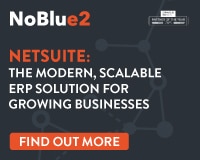Sustainability is increasingly finding itself at the core of how organisations act and operate. With climate change posing a very real and increasingly imminent threat, we all need to do our part to reduce emissions and help combat the impending threat to our way of life. Read on to learn how implementing ERP can be a big step towards sustainable manufacturing for your business, and what this can mean for your bottom line.
What is ERP?
ERP stand for Enterprise Resource Planning, and effectively acts as a program through which you can track and trace where resources across your business are being spent, the rate at which they are being used, and even prepare plans for future batches or demand forecasting. This gives you full control over where all of your resources both materials and people are coming from, going to, with the ability to highlight any inefficiencies that may be present in your production processes. Although this is primarily used for planning manufacturing processes and resources, it is also a capable asset when looking to deal with human resources management
Resource control
One of the most concerning factors at the heart of climate change is that of materials being overused. By using more than the planet can keep up with, in regard to natural resources, we as the manufacturing industry are creating significant damage that the world may either, take decades to recover from, or may not even be able to recover at all. ERP solutions able you to track your resources, planning for demand, factoring to minimise waste and making sure that you are not using more than you need to. For example, being able to keep track of what you have used means that you won’t find yourself ordering far more resources than you need to meet your planned production goals. Considering the knock-on effects of cleaning or finishing processes that may use resources such as water or energy. This isn’t just ideal for your environmental impact or carbon footprint, but ERP solutions integrated in your business process also work to protect your bank balance by preventing overordering and monitoring taxes applied to non-environmentally-friendly practices.
Less unused materials
Enterprise Resource Planning doesn’t just track what you’re using and when, it also suggests which materials you should order to create your products with smart recommendations. This allows you to order more intelligently, and without fear of wastage, such as cutting a small shape from a board only to dispose of the rest of the board. ERP can optimise your ordering and production methods, ensuring that you forward plan to order, use or stock only what you need. This means that fewer materials need to be harvested from the world around us, helping you also generate fewer emissions as an indirect output of what you order, how it’s delivered, processed or assembled and shipped on.
Efficient teams
Large teams, with each person operating their own processes can have surprisingly significant impacts on the environment. Employees commuting to and from the workplace or to customer and supplier sites, can cause them to increase their carbon footprints which contribute to your businesses overall environmental impact. Manufacturing ERP can give you a stronger overview of your workplace rotas or shift patterns, helping you to set hours in the most effective manner around machine run cycles to ensure efficient end-to-end oversight or handovers as required. Machinery or production equipment that is stopped and started continuously can take longer to get up to speed, use more fuel or cause issues that result in negative impacts on the sustainability of your business.
The verdict
If you’re looking for a way to improve your environmental efficiency, get in touch with the WinMan team today to find out more about our range of solutions designed to help you streamline and review your environmental impacts through smart software solutions.
www.winman.com





